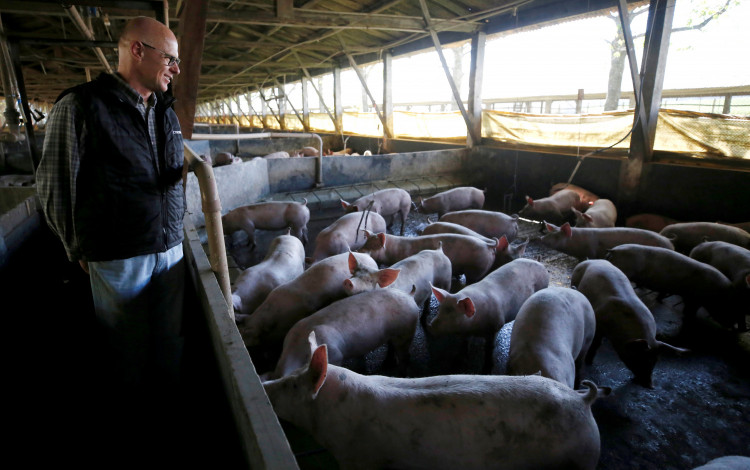The African swine epidemic has left hundreds of thousands of pigs completely useless in China. As a response to this hugely devastating epidemic, a handful of Chinese tech companies are working alongside the Chinese government in order to develop a technology that will allow them to map the facial features of a pig. Once this new technology is implemented, experts believe that it will be able to help them determine early swine diseases by using a pig's facial expressions.
Aside from facial recognition technologies, the Chinese tech firms are also looking to incorporate voice recognition in their bid to curb swine diseases through early intervention. In this Year of the Pig, thousands of Chinese swine are dying because of various diseases This threatens China's supply of pork which is considered as a staple food in every Chinese table.
In a statement, Yingzi Technology chief executive officer Jackson He said, "If they are not happy, and not eating well, in some cases you can predict whether the pig is sick Yingzi Technology is a small firm which is based in the southern Chinese city of Guangzhou. The company has taken the headline recently as it introduced what it calls as the "future of pig farm." A project that incorporates facial and voices recognition technologies into hog farming.
Aside from upcoming tech firms such as Yingzi Technologies, established and well-funded tech companies like Alibaba and JD.com are also throwing their towel into the development of these swine facial recognition technologies. Reports revealed that the two tech giants are using camera technologies in order to track a pig's face. On top of that, Alibaba is incorporating voice recognition technologies to help monitor a pig's cough pattern.
In the past few years, China has been quite quick when it comes to embracing new high-tech solutions in order to address just about any problem. China's digital revolution has transformed the country's various industries including financial services, food delivery, and veterinary services. All of these technologies can be easily accessed using a smartphone which is ubiquitous in almost any country instead of sophisticated hardware and devices.
According to many experts and the country's Agriculture Ministry, China still has about 26 million small pig farms distributed across its vast mainland. This represents almost half of all pig farms in the country. Some observers have noted that while China's push towards the digitalization of its swine monitoring activities, some pig farmers are still skeptical with regards to the effectiveness of the said technology.





